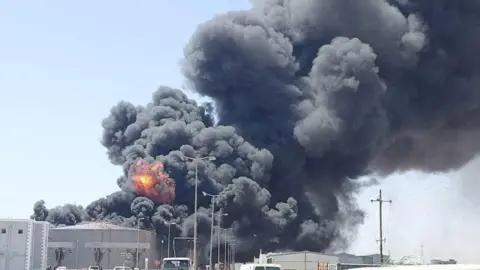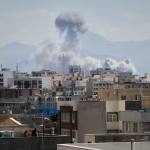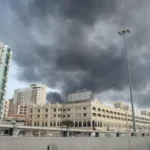The ongoing conflict in Sudan has entered a new, more perilous phase, largely due to the increasing use of drone technology. As fighting intensifies between rival factions, the deployment of unmanned aerial vehicles (UAVs) has dramatically altered the dynamics of warfare, raising the stakes and complicating efforts toward peace.
The Emergence of Drones in Sudan’s Conflict
Historically, Sudan’s civil war—spanning decades—was characterized by conventional battles and ground assaults. However, recent years have seen a significant shift with the advent of drone technology. Reports from military analysts and human rights groups indicate that both government forces and rebel factions are now utilizing drones to conduct surveillance, target military assets, and strike strategic locations.
In 2023, the conflict escalated with numerous documented drone strikes on military bases, government buildings, and civilian areas. These strikes have often resulted in significant casualties, destruction of infrastructure, and heightened fears among civilians.
Why Drones Are Changing the Game
Drones offer several strategic advantages that traditional weaponry cannot match. Their ability to provide real-time intelligence allows for precise targeting, reducing the risk to operators. They can loiter over conflict zones for extended periods, gathering crucial surveillance data. Moreover, armed drones can carry payloads to deliver pinpoint strikes, making them potent tools for asymmetric warfare.
In Sudan, these capabilities have empowered factions to conduct rapid, unexpected attacks, often with minimal warning. For example, reports suggest that rebel groups, such as the Rapid Support Forces (RSF), have employed drones to target government military bases, disrupting traditional defensive strategies.
Impact on Civilian Safety and Humanitarian Efforts
The proliferation of drone attacks has profound implications for civilians. Strikes on populated areas have caused civilian casualties and displaced thousands, exacerbating the humanitarian crisis in Sudan. The unpredictability of drone strikes also hampers aid delivery and complicates peace negotiations, as the risk of escalation rises.
International human rights organizations have condemned the use of drones in Sudan, warning that their deployment violates principles of international humanitarian law when used indiscriminately or in civilian areas. The fear of drone attacks has led to increased civilian suffering and further destabilization.
Global and Regional Implications
Sudan’s civil war is not isolated; it has regional implications. The proliferation of drone technology in the region is linked to broader trends of militarization and technological arms transfers. Countries like the United Arab Emirates and Turkey have been reported to have supplied or developed drone capabilities that are now being employed in Sudan.
This technological escalation complicates regional stability. It also raises concerns about the proliferation of armed drones to other conflict zones, potentially fueling a new arms race.
The Path Forward
The emergence of drone warfare in Sudan underscores the urgent need for international engagement and regulation. Efforts must focus on monitoring the proliferation of military drones, promoting adherence to international humanitarian law, and supporting peace initiatives to end the conflict.
While technology can offer strategic advantages, its misuse in civilian areas risks escalating violence and prolonging suffering. As Sudan navigates this dangerous new phase, the international community’s role in promoting responsible use and conflict resolution becomes more critical than ever.
Conclusion
Drones have undeniably transformed Sudan’s civil war from a conventional conflict into a complex, high-tech confrontation. Their ability to deliver swift, precise strikes has raised the stakes, making the conflict more deadly and unpredictable. Addressing this challenge requires concerted efforts to regulate drone use, protect civilians, and find lasting peace solutions—before this technological escalation leads to even greater human tragedy.
Email Us on editorial@nnafrica.com













